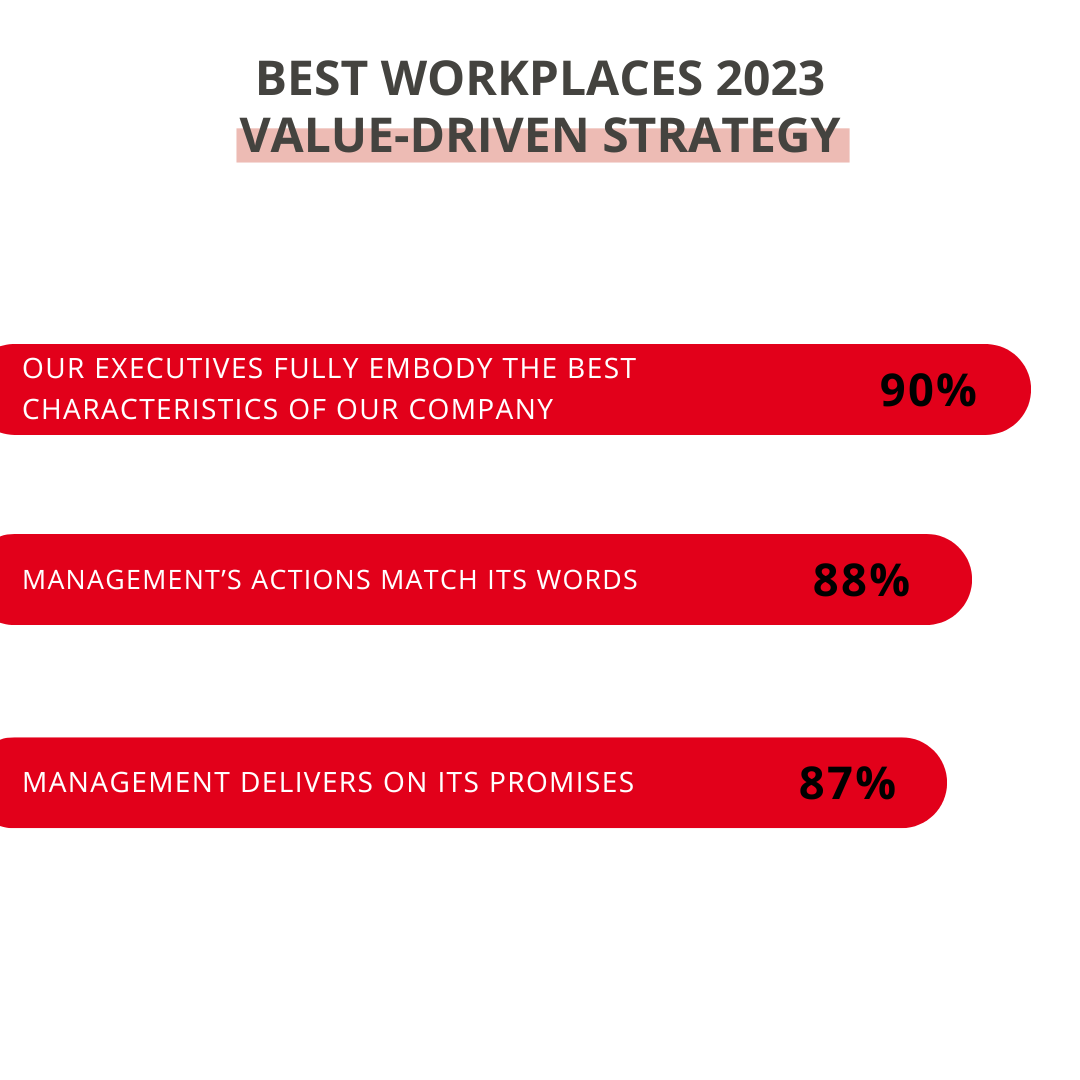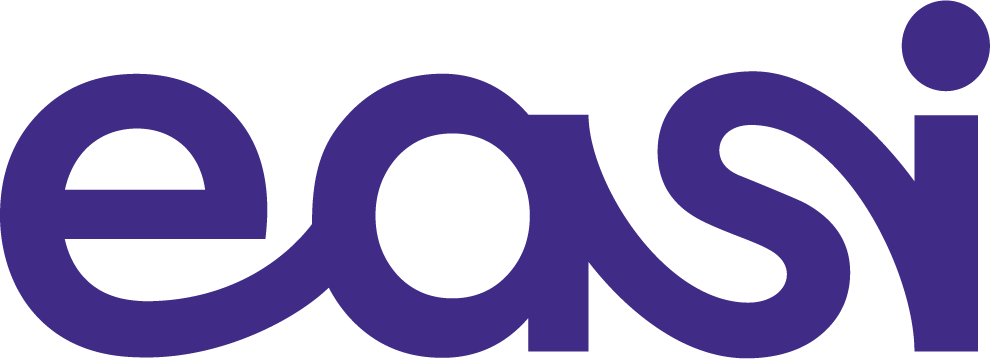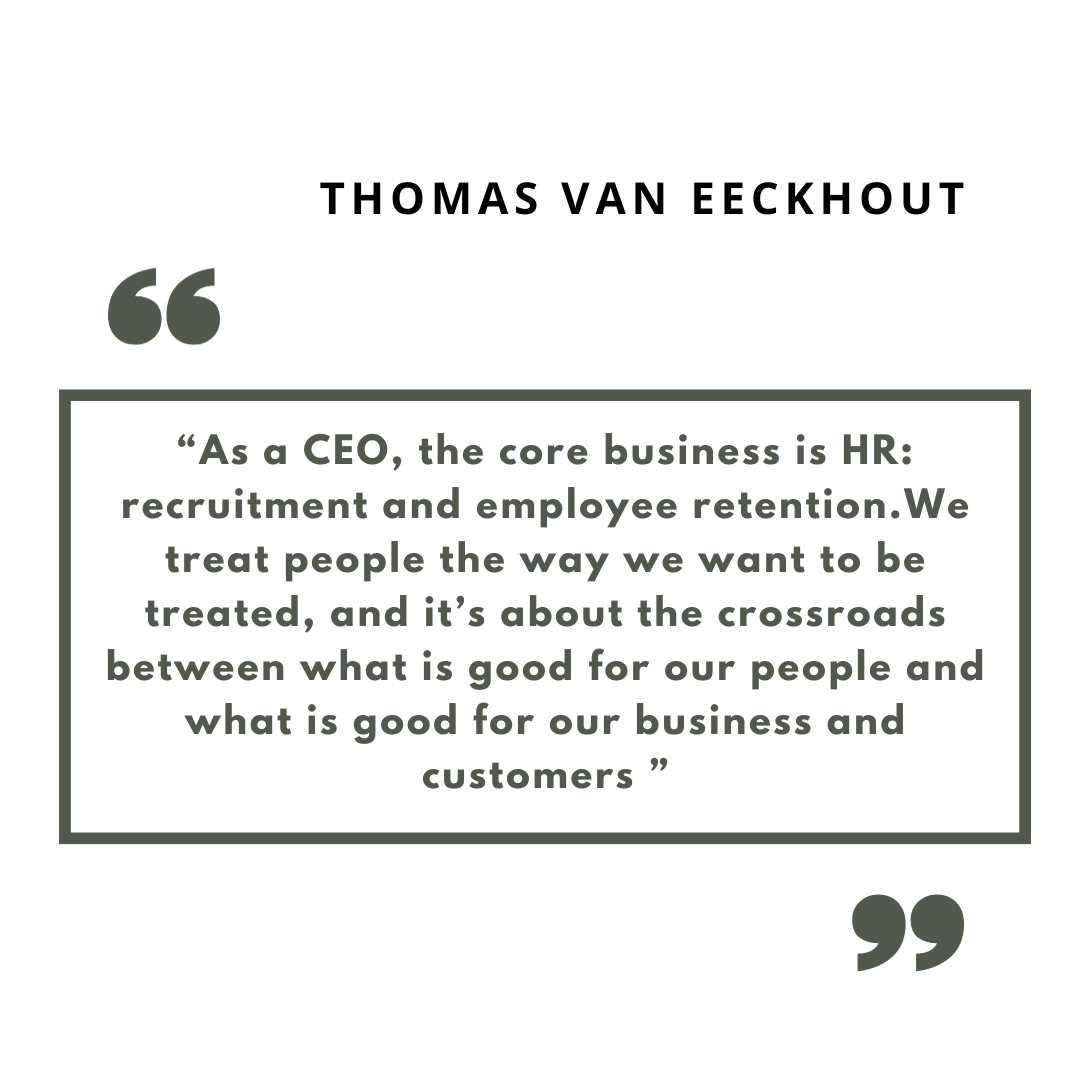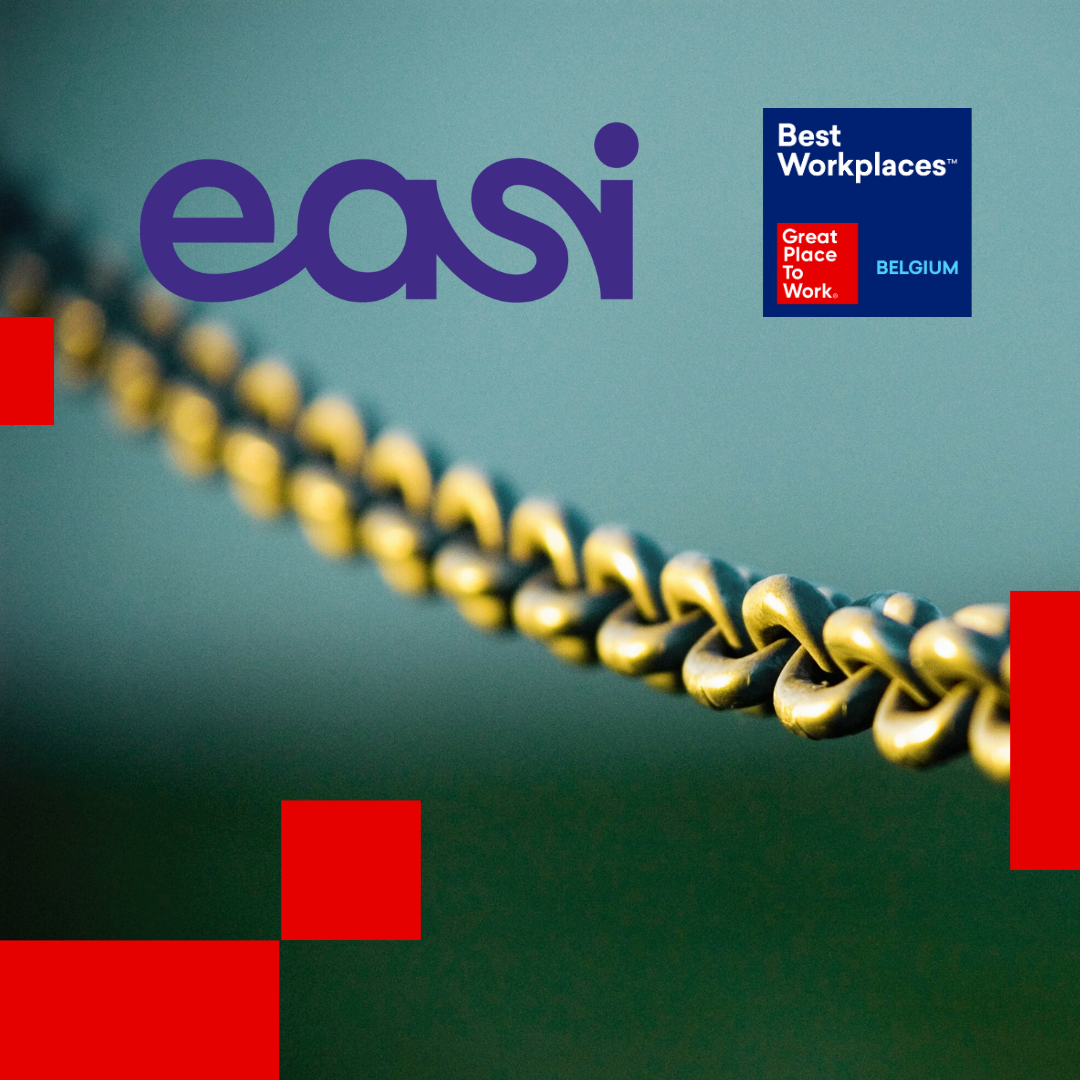Learn from the 2023 Special Awards winners: Easi - Value-driven strategy
Great Place to Work examines a company’s ability to develop inclusive leaders, tap into their people’s innovative contributions, and define values that guide how people work together. In 2023, we granted 3 special awards to organisations that excel in inclusive leadership, co-creation, and value-driven strategy. We’re happy to shed the light on some of the best employers in Belgium!
Our analysis focuses on the Trust Index™ survey data, which tell us how employees evaluate their organisation on these different aspects. To round out our analysis, we ask companies to tell us what they have done to create an intentional structure and strategy for inclusive leadership, co-creation and a value-based strategy. This is measured by means of the Culture Audit™, a management questionnaire that helps us understand what programmes and practices drive the employee experience.
When we talk about values at a Great Place to Work For All®, we are not talking about mere slogans on the wall or the language on the careers page of your company website. We are talking about principles that guide the day-to-day way people work together at your company. Values drive employee engagement and has a clear positive effect on employee retention. Our research finds that the best employers in Belgium ensure that those values and behaviours are well defined, known by everyone in the business, and are used to support the execution of their strategy. Organisations with a value-driven strategy are those in which executives fully embody the best characteristics of the company, really deliver on their promises, and match actions to their words.
When we evaluate companies for this workplace award, we analyse how they live out their values through 2 lenses: The primary lens is how employees report that the company lives its values, which we assess through employee feedback on the Trust Index™ survey. Secondly, we evaluate how the company’s stated values shape their programmes, (HR) practices, and key decisions through the Culture Audit. We search for evidence of how the company's unique values impact its culture, strategy and decision-making. Leaders use values to make decisions that cannot be made using spreadsheets and data analysis alone. They are the bedrock principles that guide the executives’ choices in complex, difficult matters like hiring, firing, geographic expansions, doing more for customers, and mergers.
 Average scores of the Best Workplaces 2023 on the Trust Index statements that belong to Value-driven strategy.
Average scores of the Best Workplaces 2023 on the Trust Index statements that belong to Value-driven strategy.

Easi
Winner of the 2023 special award Value-Driven Strategy
Commitment, responsibility, caring, positivity, and excellence: These are Easi's new values. When Easi was founded in 1999, the values were different. However, at Easi, values are very strong – so the decision was taken to evolve them in line with the company's rapid growth in recent years. They are not just symbolic; they are structurally embedded in the organisation.
In 2021 – when the work to redefine the values was launched – it was essential to involve all employees. Thus, Easi's current values are the result of a co-construction between the company's management and its employees – the values guide them in their daily work.
Easi uses its six core values as a compass when making important decisions in daily life. These are also the critical criteria to use when hiring, firing, and promoting people. Moreover, CEO Thomas Van Eeckhout revealed that “they also use the values as a condition for becoming a shareholder”. At Easi, 30% of the employees (or “collaborators”, as they call them) are stakeholders. Over 1OO collaborators are co-owners of the company, making it a powerful model. This is entirely based on their culture; it had allowed Easi to act upon their values.
Recruitment & Retention

As an IT company, they differentiate themselves by focussing on humanised technology.
The only way to keep growing and performing well these days is to have people aboard who live up to your daily values! Easi is now a company with more than 400 employees, wherefrom they hired 113 people last year and plan to hire at least the same amount this year. Having an excellent culture fit makes Easi successful, so focussing on good recruitment and employee retention is key.
How can values affect their recruitment process? Anne-Sophie shares her personal story on why she thinks Easi is a great workplace and deserved the label of being the best employer in Belgium. Her journey started when she replied to a LinkedIn message from Easi. “Maybe it was the title of being a Best Workplace that made me answer to their message and not the ones from other companies”, Anne-Sophie said. Using the certification in their employer branding practices is helpful to attract talent. Next, her interviewer could capture Easi’s values very well, and she saw that there was a good culture fit. Anne-Sophie is already working at Easi for more than 2 years and feels like she has learned a lot and will keep having these opportunities. According to her, the company also places employee retention centrally.
Great Place To Work as a mirror
“By defining the Great Place to Work model in our company, we can keep track of what can be improved and what is going well authentically. Great Place to Work serves as a mirror for Easi, so we can see if we still ‘walk our talk’”, Thomas explained. For example, their mission to be happy at Easi results from the Great Place To Work research. Thomas stresses that well-being at work is not enough; happiness goes further. The fun events and benefits are certainly nice to have. But considering it an intrinsic great workplace where you enjoy your job and the people you work with is due to a good culture fit. “It is a two-way street, where employers create a context where collaborators can be happy and have ownership over their career”, clarified Thomas. It is about fulfilling the needs that people have.

